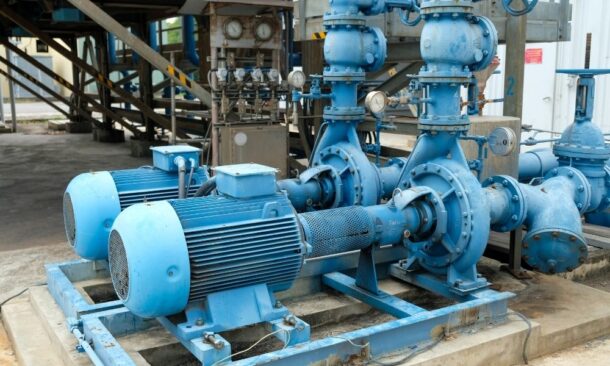When you’re looking for a pump, there are a lot of things to care about. You want something that is going to be reliable, durable, and efficient. You want it to be easy to install and maintain. And you want something that’s affordable—but still high-quality.
In this article, we’ll discuss how to buy frame mounted centrifugal pump, tips for cleaning and troubleshooting issues to make sure your water pump performs effectively.
Why Care for Your Centrifugal Water Pump?
Caring for your centrifugal water pump is a crucial step in keeping it running smoothly. Doing this will ensure:
- Your pump lasts longer.
- It performs as expected and keeps your home or business running smoothly.
- You’ll save money on energy costs by using less electricity than if you don’t care for it.

Tips for Cleaning and Maintenance
Taking care of a water pump is important to ensure its proper functioning and longevity. To clean a centrifugal water pump properly, you should follow these steps:
- Turn off the power to the pump and relieve the pressure from the system.
- Drain the fluid from the pump and surrounding pipes.
- Remove any debris, such as stones or other solid objects, from the pump housing and impeller.
- Clean the pump housing and impeller with a mild soap solution and a soft brush. Rinse thoroughly with water.
- Inspect the pump and its components for any damage or wear. Replace any damaged or worn parts as needed.
- Reassemble the pump and fill it with the proper fluid.
- Turn the power back on and start the pump to check for proper operation.
Troubleshooting Tips
- Check The Air Pressure
If your pump is running but not pumping, it’s probably because it’s not getting enough air. Make sure that the air compressor is working properly, and if you have to adjust it, do so in small increments until you find the perfect balance between too much and too little air pressure.
- Avoid Starvation of the Pump
If you notice that your pump isn’t working as well as it used to, it could be because of an issue with its shaft seal: if the shaft seal gets old or damaged, water will leak out of the pump instead of going into it! This means that your pump won’t be able to move water as it should—and this can lead to all kinds of problems down the road (like corrosion). So make sure to keep an eye on your shaft seal.
- Feel the temperature of all bearings
The last thing you should do before replacing or repairing anything on your pump is make sure it’s not overheating—and this includes its bearings! To do this, simply touch each one gently with a finger; if it feels warm but not hot to touch, then everything should be fine!
Signs Your Water Pump Needs Repair
A centrifugal water pump can show various signs that it needs repair. The following are some of the common signs that indicate your centrifugal water pump needs repair:
- Your Pump Won’t Start
If your water pump won’t turn on, there are a few things you can do to try and get it started. First, make sure that the power is set to ‘on’ in your house. If that doesn’t work, check the breaker or fuse box to make sure that it isn’t tripped or blown. If it is, flip the switch back on and wait for a few minutes before testing again. Finally, if all of this fails, call an electrician as soon as possible!
- Reduction in Fluid Flow
If you notice a significant decrease in the amount of water that is being pumped into your pool, the problem may be with your pump. This can happen when there is a blockage in the pump or if it has been damaged by debris.
- Leaking
There are several signs of leaking. If you notice any of the following, then it’s time to get your centrifugal water pump checked out:
- Water pooling on the ground beneath your pump
- Water coming out of one side of the pump when it’s running
- Water leaking from around where the pipe connects to the pump or where the pipe connects to another piece of equipment in your system
- Noisy Bearings and Cavitation
If you hear a humming noise coming from your centrifugal water pump, then this could mean that something isn’t running correctly inside there which means that it needs to be replaced before any further damage occurs. It’s possible that the bearings are causing the sound.
If this is the case, check your bearing oil for water and discoloration, as well as the temperature of all bearings. If you notice any of these signs, you may need to replace your bearings or have them checked by a professional.
- Inspect the Bearing Oil for Water and Discoloration
While checking for noisy bearings is important, another thing to look out for is cavitation—a phenomenon that occurs when air bubbles form in a liquid due to low pressure or turbulence at high speeds (like those used by centrifugal pumps). If you notice any signs of cavitation on your bearing oil’s surface, contact a professional immediately!
Conclusion
There you have it! A simple guide to caring for your centrifugal water pump.
It’s important to note that a centrifugal water pump is a complicated piece of machinery that can be damaged or destroyed if not properly cared for. But with some simple maintenance, you can make sure your pump keeps working great for years to come!
Remember to check your impeller regularly for cracks and wear, and replace it if necessary. Also keep an eye on the bearings and sealings, which should be lubricated regularly. If you smell burning rubber when you turn your pump on, or if there are signs of oil seepage from the bearings, then your bearings may be starting to fail—and that could mean trouble for your pump.
If you have any questions or concerns, please don’t hesitate to reach out!




Join the conversation: